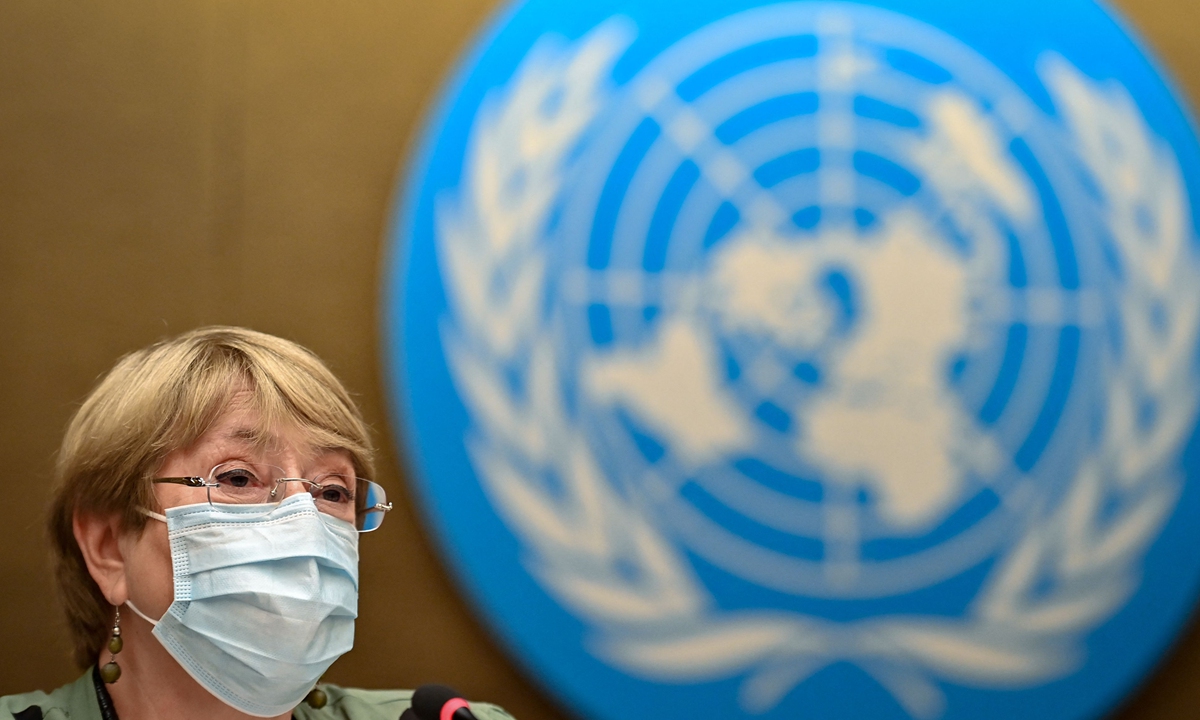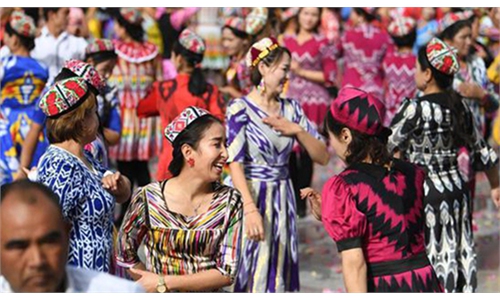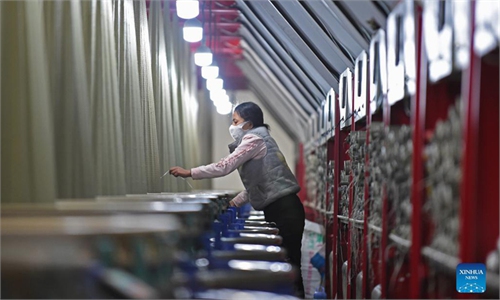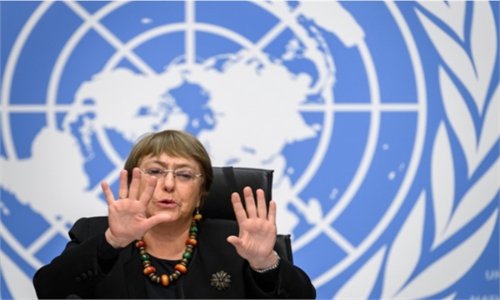Bachelet cites personal reasons for not seeking second term amid US' politicization of human rights body

United Nations High Commissioner for Human Rights Michelle Bachelet delivers a speech on global human rights developments during a session of the Human Rights Council on June 21, 2021 in Geneva. Photo: VCG
The announcement of UN human rights chief Michelle Bachelet not to seek a second term has drawn wide attention globally, and experts noted that as Bachelet's decision was made for personal reasons, the US and anti-China forces' hype of the topic aims to continue their "genocide" allegation to contain China and their moves to pressure Bachelet are shameful "political bullying."
While addressing global human rights developments at the 50th Human Rights Council session on Monday, Bachelet said that "As my term as High Commissioner draws to a close, this Council's milestone fiftieth session will be the last which I brief."
She later posted on her Twitter account that the decision to not seek a second term is due to "personal reasons" and "it is time to go back to Chile and be with family."
Bachelet's announcement has drawn international attention as she has been put in the center of the storm by the US and anti-China forces while they lead a campaign to criticize Bachelet for not going with their "genocide" allegation against China's Xinjiang region.
For example, Luke de Pulford, an adviser to the World Uyghur Congress - a US-backed network that seeks to split the Xinjiang region from China - tweeted on Monday that the "Uygur-led campaign" to prevent Bachelet from securing a second term "achieved its goal" and "time to secure someone who is up to the job." Other US-backed separatists from China's Xinjiang region, including Rushan Abbas, have been busy opposing Bachelet.
While analysts said Bachelet will not yield to opposition voices, the anti-China forces are using the topic to "celebrate illusory victory" and to continue their lies on Xinjiang.
Jeffrey Sachs, a professor of economics at Columbia University in New York and also senior UN advisor, told the Global Times that Bachelet said that she had already notified the UN secretary general before her trip to Xinjiang that she wanted to step down.
"She's 70 years old. It's a hard job. She's been a leader for many years. She expressed her decision in terms of personal reasons. And I have every reason to believe that," said Sachs, noting that he knows Bachelet for many years and admires her for "she handles her office and all positions with tremendous responsibility."
Bachelet is a Chilean politician and served as the UN High Commissioner for Human Rights since 2018. Previously, she was elected President of Chile twice and served from 2006 to 2010 and from 2014 to 2018, and was the first female president of Chile.
As a mature politician, Bachelet may have decided not to seek a second term long ago, and her visit to China in May helped the Office of the High Commissioner know more about the human rights situation in China and the Xinjiang region, which is a positive signal, He Zhipeng, a professor of international law at the School of Law with Jilin University, told the Global Times.
However, the pressure the US and anti-China forces have put on Bachelet, from requiring her to visit the Xinjiang region to opposing her visit and criticizing her for not agreeing with the "genocide" allegation, can be called "political bullying" and it is shameful for them to bully others under the name of human rights.
On May 28, after her six-day visit in China, Bachelet held an online press conference, during which she stressed her trip to the Xinjiang region was not an investigation and her mission had wide and open discussions with people from different sectors in Xinjiang.
Analysts said that Bachelet dismissed the rampant disinformation on the Xinjiang region which was a slap to the US and some Western countries, their media and anti-China forces.
Sachs also said that "I am very glad that she went to China, had the dialogue. She made a forthright statement to raise many issues. This is the approach we should take. We should not make accusations without evidence or make provocative charges that are outrageous to other parties."
Sachs noted that as the "genocide" allegation is a total lie made by the US and anti-China forces, more people with justice and conscientiousness will know the truth as China continues its openness to the outside world.
However, as the US is intensifying competition with China in every field, it will wield its influence on the choosing of Bachelet's successor - this is what it has done in trade, environment and other sectors, the expert said.
In October 2021, three years after former US president Donald Trump withdrew from the UN Human Rights Council, the US announced to rejoin it and President Joe Biden was cited by media as saying that he looked forward to the US to push the council to protect human rights values.
However, since its return, the US has intensified efforts to use human rights as a tool to pressure other countries, especially to push "genocide" allegations against China, and such moves have raised concerns among scholars.
"In 2006 before the revolution of the UN Human Rights Commission, I discussed one topic with international experts - the politicization of human rights. After 15 years, the problem still exists and has deteriorated as some countries are not thinking about how to protect human rights but are keen on using human rights to contain others," said He.
The US is pressuring China by hyping human rights issues. What it is interested in is not human rights issues but how to maintain its political hegemony, said He.



